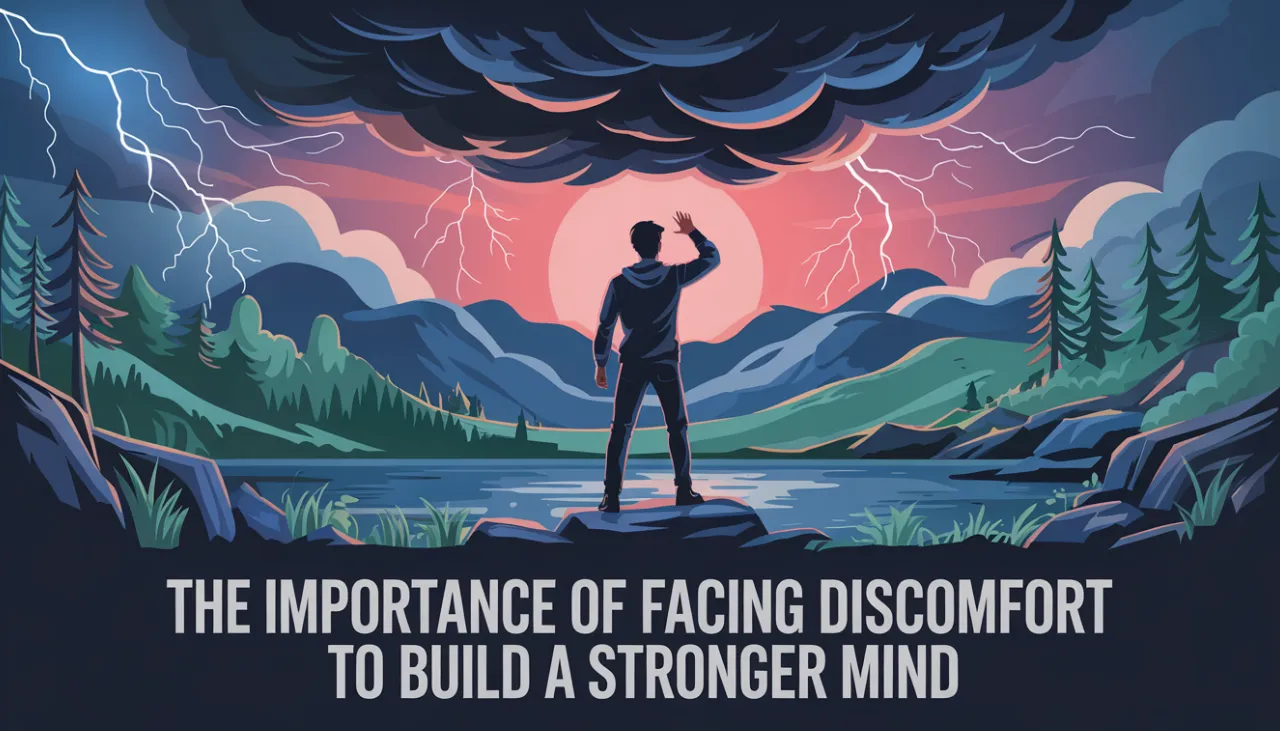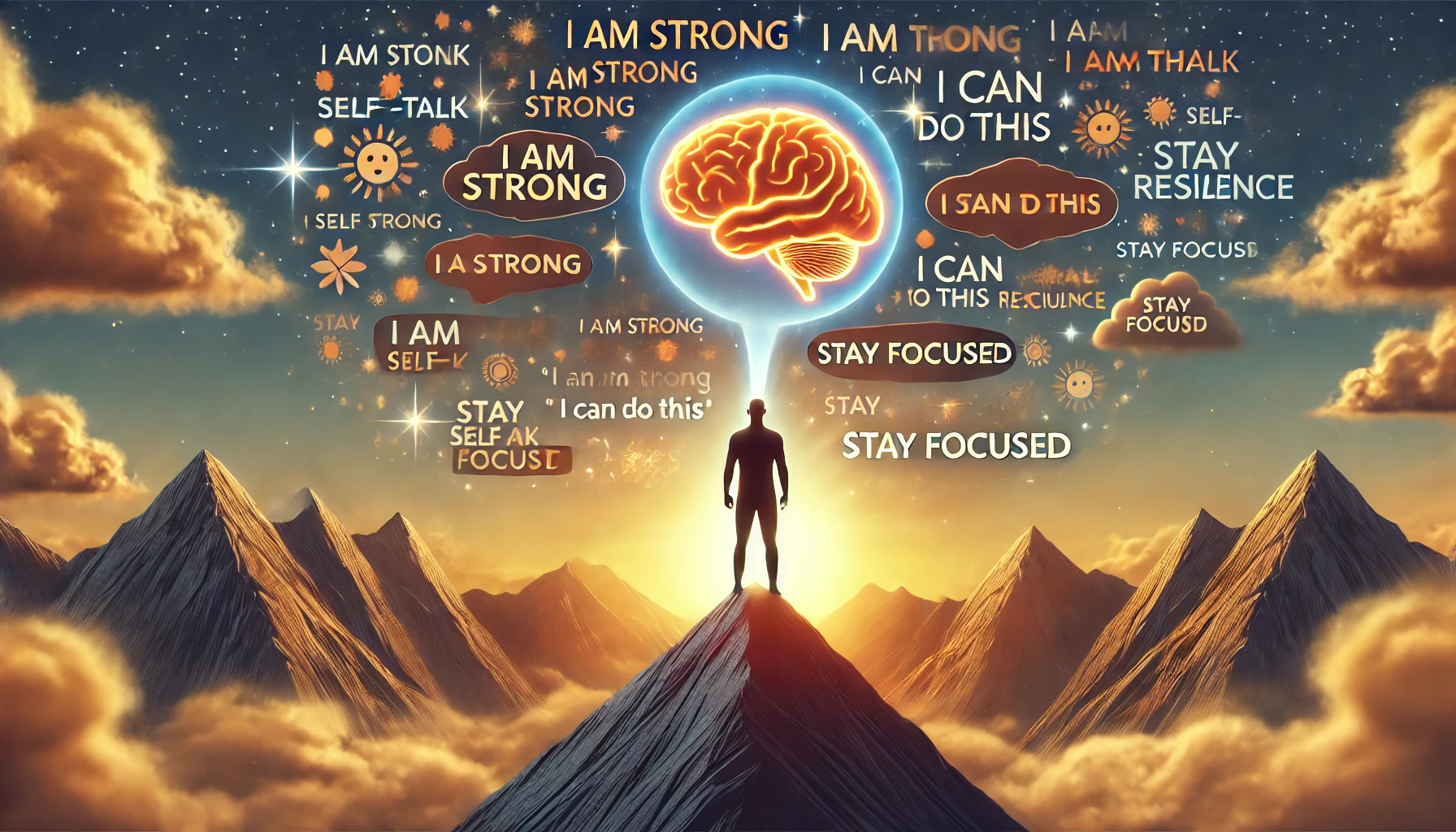Resilience is the ability to adapt, recover, and grow stronger in the face of difficulties. It’s not just about surviving tough times—it’s about training your brain to handle adversity with confidence and emerge even stronger.
Neuroscience reveals that resilience is a skill that can be developed. By understanding how your brain processes stress and setbacks, you can train yourself to bounce back faster, stay motivated, and turn obstacles into opportunities.
In this article, you’ll learn the science behind resilience and how to train your mind to overcome challenges effectively.
1. What is Resilience and Why Does It Matter?
Resilience is the brain’s ability to adapt to stress, challenges, and uncertainty without breaking down emotionally or mentally. It’s controlled by key brain regions that determine how well you regulate emotions, manage stress, and maintain focus under pressure.
Key Components of Resilience
| Component | Description | Example |
|---|---|---|
| Emotional Regulation | Staying calm under pressure | A firefighter handling an emergency |
| Cognitive Flexibility | Adapting to unexpected changes | An entrepreneur pivoting after a business failure |
| Growth Mindset | Viewing failures as learning opportunities | A student improving after a failed exam |
| Stress Tolerance | Managing discomfort effectively | An athlete pushing through fatigue in competition |
📌 Example: Research shows that people with higher resilience experience less anxiety, better focus, and faster recovery from setbacks.
2. How the Brain Builds Resilience
Resilience is shaped by how your brain processes stress and setbacks. The ability to recover from adversity depends on the interaction between three key areas:
- Prefrontal Cortex – Controls rational thinking and problem-solving under stress.
- Amygdala – Processes emotions and fear responses.
- Hippocampus – Helps regulate stress hormones and stores lessons from challenges.
When faced with adversity, the brain either reacts impulsively (amygdala dominance) or stays composed (prefrontal cortex control). Strengthening resilience means training your brain to remain calm and respond constructively in difficult situations.
📌 Example: Studies show that meditation and mindfulness training strengthen the prefrontal cortex, improving emotional control and stress tolerance.
3. Science-Backed Strategies to Train Resilience
✅ a) Reframe Setbacks as Growth Opportunities
Resilient people see challenges as opportunities to grow, not as failures. This shifts brain activity from fear-based reactions to problem-solving mode.
- Ask “What can I learn from this?” instead of “Why did this happen to me?”
- Replace negative self-talk with growth-oriented thinking (“This is making me stronger.”).
- View failure as feedback—not as a permanent condition.
📌 Example: Thomas Edison reframed his 10,000 failed attempts at inventing the lightbulb as 10,000 lessons learned.
✅ b) Strengthen Emotional Regulation with Deep Breathing
Controlling emotions under stress is key to resilience. Breathwork helps regulate the autonomic nervous system, reducing anxiety and improving focus.
- Box Breathing: Inhale for 4 seconds → Hold for 4 seconds → Exhale for 4 seconds → Hold for 4 seconds.
- Physiological Sigh: Take a deep inhale, then a second short inhale, followed by a slow exhale.
- 4-7-8 Breathing: Inhale for 4 seconds → Hold for 7 seconds → Exhale for 8 seconds.
📌 Example: Navy SEALs use box breathing to stay calm and focused during high-stress missions.
✅ c) Develop Cognitive Flexibility to Adapt to Change
The ability to adjust to new situations is a core part of resilience. Training cognitive flexibility makes it easier to adapt to uncertainty and find creative solutions.
- Practice “If-Then” Thinking: “If this plan doesn’t work, then I’ll try another approach.”
- Expose Yourself to New Experiences: Learning new skills rewires the brain for adaptability.
- Change Daily Routines Occasionally: Taking a different route to work or trying new foods strengthens cognitive flexibility.
📌 Example: Research shows that people who frequently learn new skills (languages, music, problem-solving games) develop stronger adaptability and resilience.
✅ d) Build Mental Toughness with Controlled Stress Exposure
The brain strengthens resilience when it experiences small, manageable stressors. This process, called stress inoculation, improves how you handle real challenges.
- Take Cold Showers: Trains the nervous system to handle discomfort.
- Practice Delayed Gratification: Wait 10 minutes before checking your phone.
- Engage in Physical Challenges: Pushing through a tough workout builds mental and physical resilience.
📌 Example: The Marshmallow Test found that children who resisted instant gratification had higher success and resilience in adulthood.
✅ e) Strengthen Your Support System
Social connections buffer the effects of stress and improve resilience. Surrounding yourself with positive, resilient people reinforces strong mental habits.
- Seek out mentors and role models.
- Join a supportive community (work, sports, or learning groups).
- Express gratitude for relationships, which strengthens emotional resilience.
📌 Example: Studies show that people with strong social connections recover faster from trauma and are more likely to persevere through challenges.
4. Long-Term Strategies to Maintain Resilience
✅ Prioritize Sleep: Poor sleep weakens stress regulation and emotional control.
✅ Practice Mindfulness: Increases awareness of emotional triggers and stress responses.
✅ Exercise Regularly: Physical movement reduces cortisol (stress hormone) and improves mood.
✅ Keep a Resilience Journal: Track challenges and how you overcame them to reinforce growth.
📌 Example: Neuroscientists found that regular exercise increases neuroplasticity, making the brain more adaptable to challenges.
Final Thought: Train Your Brain to Overcome Challenges
Resilience isn’t just about enduring hardship—it’s about training your brain to stay strong, adapt, and grow through difficulties. By applying science-backed strategies, you can build mental resilience and face challenges with confidence.
✅ Reframe setbacks as opportunities for growth.
✅ Use breathwork and cognitive flexibility to stay calm and adaptable.
✅ Strengthen resilience with controlled stress exposure and a strong support system.
Start today: Pick one resilience-building strategy and apply it to your daily routine to strengthen your mind against challenges! 🚀












Leave a Reply